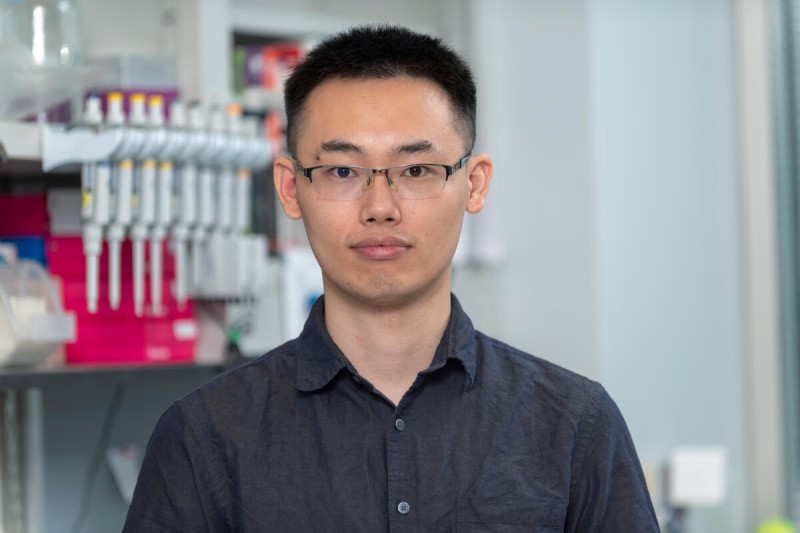
PhD graduate Dr. Renhe Luo won the 2024 Chairman’s Prize at the Gerstner Sloan Kettering Graduate School, affiliated with Memorial Sloan Kettering Cancer Center.
Renhe Luo, PhD, who recently graduated from the Gerstner Sloan Kettering Graduate School of Biomedical Sciences (GSK), has been awarded the 2024 Chairman’s Prize. The competitive award is presented annually and was established by GSK’s Board of Trustees Chair Emeritus Louis V. Gerstner Jr., for whom the school is named.
This year’s $2,000 Chairman’s Prize was awarded to Dr. Luo for his research on gene enhancers, which are regulatory DNA sequences that are critical in determining when and where genes are turned on or off. Enhancers play an important role in development, cell differentiation, and the response to environmental signals.
Dr. Luo did his research in the Danwei Huangfu Lab, which uses precision gene editing and large-scale CRISPR screening in human pluripotent stem cells (hPSCs) to explore mechanisms underlying human development. His research used CRISPR screening to identify gene enhancers by perturbing them to see what the downstream effects would be.
He focused on an important stage of development, when embryonic stem cells transition to the next stage of development — the endoderm state. One of the earliest and most consequential decisions a cell makes is whether to become part of the endoderm, one of the three primary (germ) layers that make up an early embryo.
The approach enabled Dr. Luo and colleagues to identify more than 20 “core gene enhancers” that regulate the expression of many master genes in this cell state transition. Their discovery will allow further research to shed light on how development unfolds and how it can go wrong and lead to cancer.
“This research provides strategies for discovering more comprehensive enhancer sets, both in normal development and in cells transitioning to cancer cells or other disease cells,” Dr. Luo says.
“Understanding which enhancers are active in which cells helps explain how we have different cell types,” Dr. Huangfu says. “Some of us are more likely to suffer from a certain disease, and for many diseases, the underlying reasons are tiny changes in the enhancer. Understanding those changes could ultimately allow us to better interpret who is more likely to get which disease.”
Tenacity and Technical Flourish
Dr. Huangfu praised the hard work, tenacity, and technical prowess that made Dr. Luo’s research possible.
“When we started, I didn’t know if the project would work, but Renhe was very confident,” she says. “He came up with technical innovations to get the job done. That’s what distinguishes him from many other people — he is relentless in pushing the boundaries, and nothing will stand in his way.”
Dr. Luo, who grew up in a small town in China, had dreamed about being a scientist since grade school. He came to the United States to join Dr. Huangfu’s lab in 2016.
“The exposure in Dr. Huangfu’s lab to cutting-edge technologies such as gene editing, CRISPR screens, and single-cell sequencing during my PhD journey fueled my excitement and commitment to this field,” he says.
He is now a research scientist at Spark Therapeutics in Philadelphia, applying the same groundbreaking technologies to gene therapy, potentially reshaping the future of patient care.
Dr. Luo’s research findings in Dr. Huangfu’s lab have been published in the journal Nature Genetics and are summarized here.



